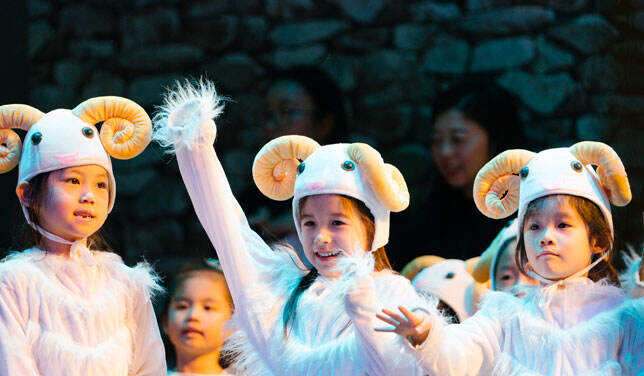Meet the Heads and Deputy Head of College
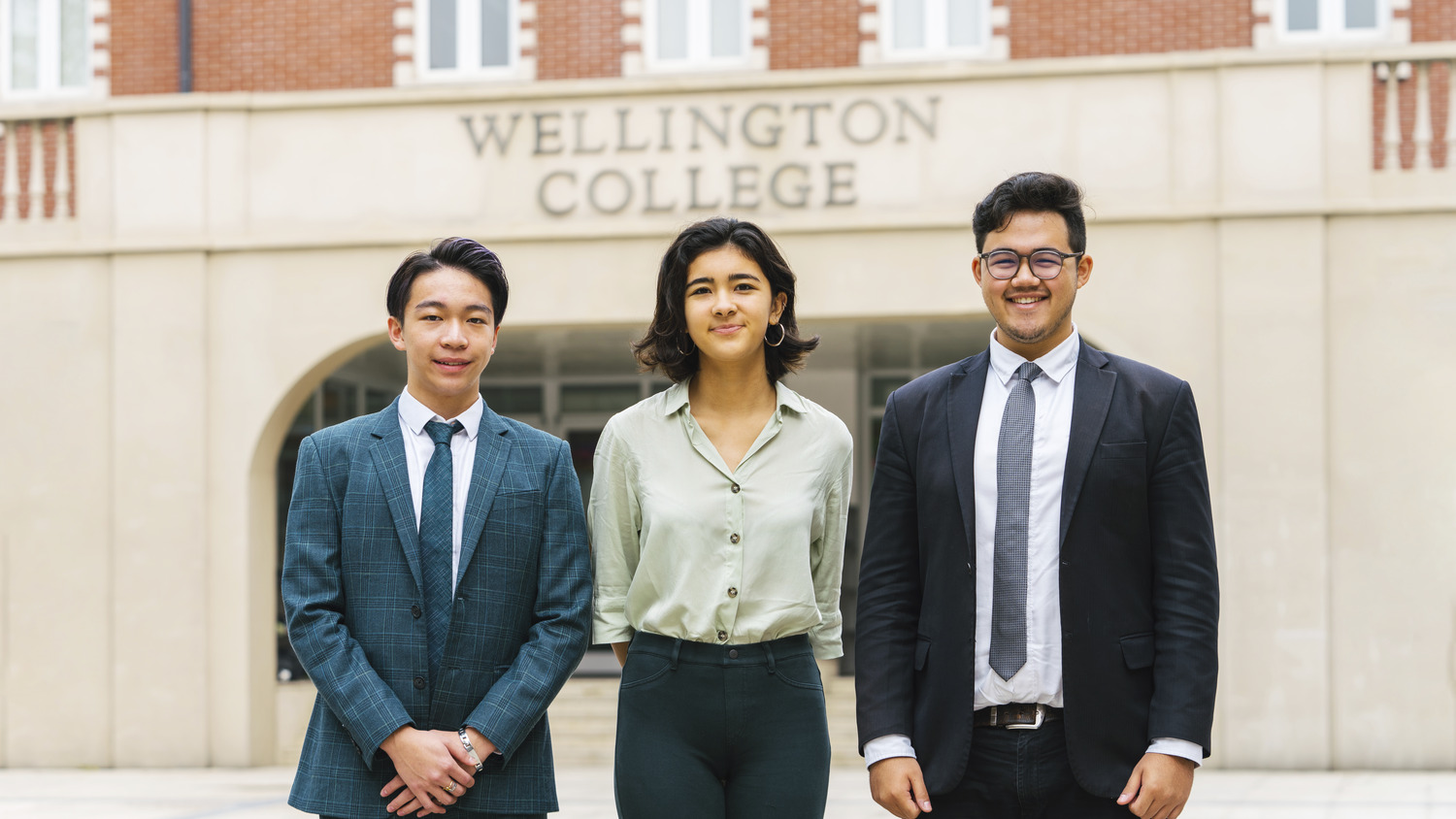
Wellington College's senior pupil leadership team have settled into their roles and have started representing their fellow pupils. We sat down with year 13 pupils Mats and Serena (Heads of College) and Jasper (Deputy Head of College) to hear their thoughts on leadership, being role models and their plans for the academic year ahead.
How does it feel to be taking on this role?
Mats: It has been great so far. Obviously, there has been a little pressure, because we are also doing the IB Programme. But, at the same time, it is quite rewarding to contribute to the school more directly.
Jasper: With authority comes responsibility, and I think we have to consider other pupils' perspectives a lot more than we did before. Because, for an organisation to work properly, we need to consider what our fellow pupils want and how that will work. So right now, we're just trying to get the fundamentals down and keep it all going.
Serena: I was very happy to take on this position, because we get to represent the pupils and maximise their experience here by listening to their feedback, organising house activities, working with charities. It really is such a good opportunity to work with the pupils and organise things that they are interested in participating in.
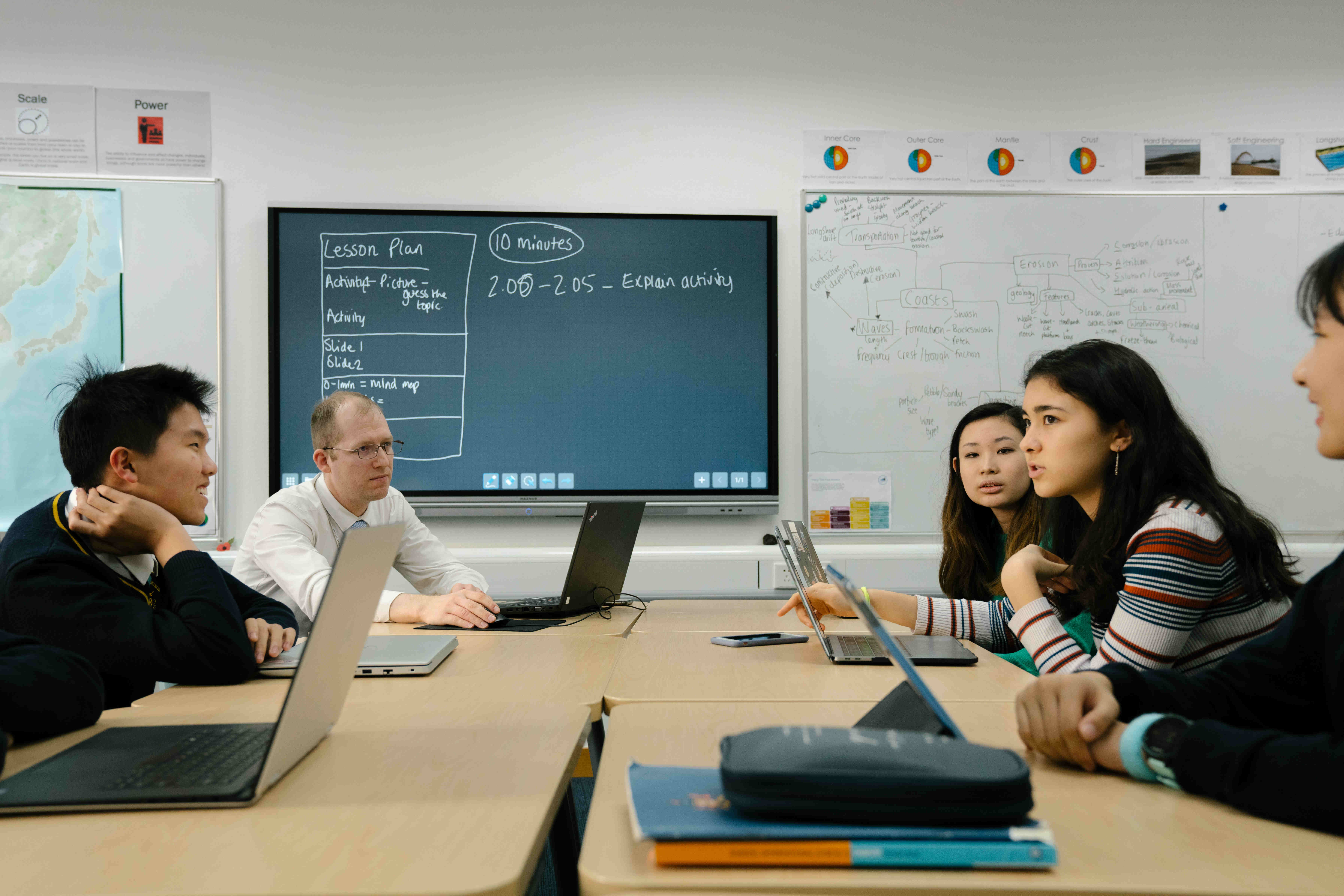
Do you find the idea of balancing this responsibility with your coursework daunting?
Mats: At first it was, but now we are more settled in to the roles. So far, it has not been too bad.
Jasper: You keep having stuff thrown at you, and you have to do interviews, conversations and speeches. It was a little overwhelming, but we eventually got used to the schedule, settled in, managed our time and now it's okay.
Serena: It has certainly made us all better at delegating. We have a large and quite capable pupil leadership team. Being able to share some of the work with them has helped a lot.
What inspired you all to apply for this position?
Mats: I think its similar for the three of us, but we are all founding members of Wellington College International Shanghai. We started year 7 here in 2014. Now that we are about to leave, this is the best opportunity that we are going to get to leave our own fingerprint on the school.
Jasper: In the seven years I have been here, I have developed a sense of responsibility for the pupils in the younger year groups. It makes you want to step up and be of service them.
Serena: This school has given us so much these past seven years. It has made us who we are. It is time to give back to the community that has shaped who we are today.
What do leadership and responsibility mean to you?
Mats: It means being a role model to younger students. I have an older brother who has already left and an another one who is a year below me. I have learned a lot from my older brother about what it means to be a role model, and I think setting an example academically and socially are a big part of that.
Jasper: I think we are here to be role models, but we are also here to inspire the younger pupils. The things we have achieved took a lot of work, but as big a challenge as it maybe, we need to be here to remind the younger pupils that it is attainable.
Serena: It also means being accessible. We are here to give advice based on our experiences, our past successes, our past failures.

What are some of the things you would like to accomplish this year?
Mats: One of my goals is to bridge the gap between the Prep School and the Senior School. The Prep School is such a big part of the College, so we aim to be more involved more closely with this part of the College.
Serena: We want to help establish Wellington traditions through activities like house competitions in athletics. I would also like to organise an educational festival that would resemble something like a TED Talk. It would be a great opportunity for pupils across the school to share ideas and promote community spirit.
Jasper: My goal is to establish a more efficient organisation and communication system for the PLT. We developed a system for our leadership group. It lays out how meetings will work, how frequently they take place and what are the best methods for sharing information within the organisation.
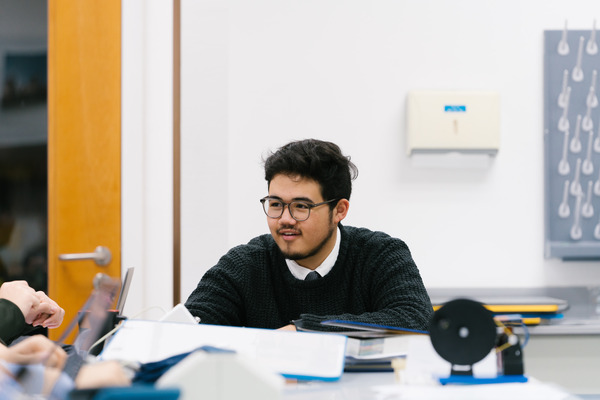
How has the Wellington Shanghai school's experience prepared you for taking on a leadership position like this?
Serena: We are all encouraged to do so many things at once, so we have always been busy. I think that has prepared us to manage the workload we have. Also, we are an international school. We are all from so many different cultural backgrounds. Because of this we are all better equipped to understand different perspectives, which is really important when you are representing other people's interests.
Mats: The friendly, supportive environment here encourages us to take bolder risks. That enables us to apply for roles like this without being nervous about what is to come. When we started at Wellington in 2014, this was a tightly knit community. It has remained that way despite how much the school has expanded. We have never lost that sense of community.
Jasper: When we started here, every year group had about 20 pupils, so we worked really closely with the older year groups. We saw them achieve impressive things, and, because we were close friends with them we knew what their skills and abilities were, which made their accomplishments seem all the more attainable.
How will this position prepare you for life after Wellington?
Mats: The biggest assets will be our organisation and leadership skills. We are not just working with each other. We are working with fellow pupils, teachers and other staff. We have to organise our time and energy to be effective, and being able to do that is essential for success in any organisation.
Jasper: I agree with Mats. Leadership and organisation skills. This position gives us experience in managing people, and that is going to be necessary in any career path. If you want to lead people, it is good to get experience as early as possible.
Serena: I think another key skill we are learning is how to develop and maintain interpersonal relationships. It is important to know how to talk to people of different ages and from different backgrounds, how to talk to superiors in an organisation and how to effectively communicate what you want to achieve.
相关资讯











